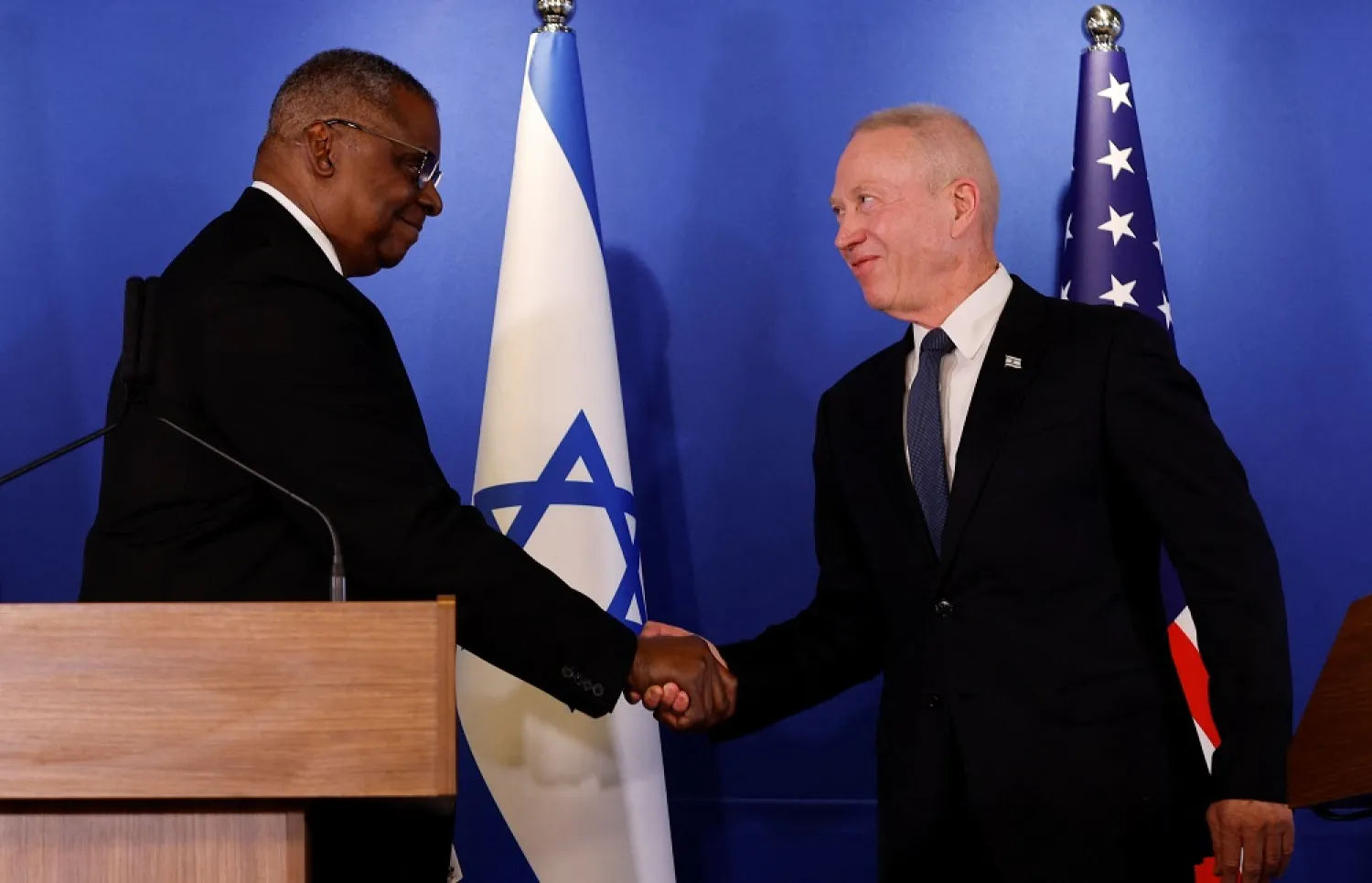Long-running differences between the Biden administration and Israel over how to stop Iran’s rapidly accelerating nuclear program spilled into public view Thursday, as the US defense secretary discussed Tehran's nuclear ambitions with his Israeli counterpart during a visit to the country.
Even with efforts to revive the landmark 2015 nuclear deal stalled for months, Defense Secretary Lloyd Austin insisted in comments in Tel Aviv that “diplomacy is the best way to prevent Iran from getting a nuclear weapon.”
Israeli Defense Minister Yoav Gallant made no mention of the moribund nuclear talks, instead telling Austin: “We must take all measures necessary to prevent Iran from gaining a nuclear weapon.” He appeared to suggest that Israel could resort to military action to take out Iran's nuclear facilities.
“The Iranian nuclear threat requires us to be prepared for every course of action,” Gallant said and repeated twice for emphasis.
The distinction between their statements revealed the countries’ different approaches to Iran.
With Biden as his vice president, then-President Barack Obama spearheaded the 2015 nuclear accord, which gave Iran relief from economic sanctions in exchange for curbs on its nuclear program.
Israeli Prime Minister Benjamin Netanyahu bitterly opposed the deal, saying it did not contain sufficient safeguards and did not address non-nuclear Iranian aggression in the region.
After former President Donald Trump abandoned the atomic accord and imposed crippling sanctions on Iran, Tehran gradually increased its uranium enrichment, expanded its stockpiles of enriched uranium and developed advanced centrifuges. UN experts say Iran has enriched uranium to 84% purity, just short of weapons grade, though they say Iran is still months away from the ability to build a weapon.
Biden took office pledging that the United States would rejoin the 2015 nuclear accord and lift sanctions on Iran if Tehran complied with the deal's strict limits on its nuclear program. But attempts to revive the accord have failed.
Israel, meanwhile, has engaged in a yearslong shadow war with its archenemy Iran that has spilled out across the wider Middle East. Since returning to office late last year, Netanyahu has openly advocated military action against Iran. Seeking to roll back Iran's regional entrenchment and slow its ability to enrich nuclear fuel, Israel is believed to have conducted a series of covert sabotage and targeted killing operations.
“We must do everything in our power to ensure that the dreams of the mullahs are never fulfilled at any cost,” Gallant said.
American and European officials have indicated that attempts to revive the nuclear deal have been effectively suspended in the wake of Tehran’s violent crackdown on nationwide protests and its selling of armed drones to Russia that have been used in Moscow's war against Ukraine — a decision that has allowed Iran to access “unprecedented defense cooperation, including on missiles and air defense" from Russia, Austin alleged.
Russia's war on Ukraine also exposed stubborn differences between the two close allies. Although Israel has sent humanitarian aid to Ukraine, it has refused Kyiv’s frequent requests to send air defense systems and other weapons. It also has refrained from enforcing strict economic sanctions for fear of damaging its vital relations with Moscow.
For years, Russia and Israel have enjoyed good working relations and closely coordinated to avoid run-ins in the skies over Syria, Israel’s northeastern neighbor, where Russian air power has propped up embattled Syrian President Bashar Assad.
Austin on Thursday appeared to urge Israel to do more to back Ukraine in the grinding war, noting the increasingly close military ties between Iran and Russia.
“We're calling on all of our allies and partners to step up now, at this hinge moment in history,” he said. “Nations of good will, and especially our fellow democracies, must all urgently do their part to help Ukraine fight for its freedom.”
When asked by a reporter what it would take for Israel to give Ukraine military aid, Gallant was vague.
“We are doing our best,” he said. “We are doing it with the understanding of Israeli interests in the region.”









